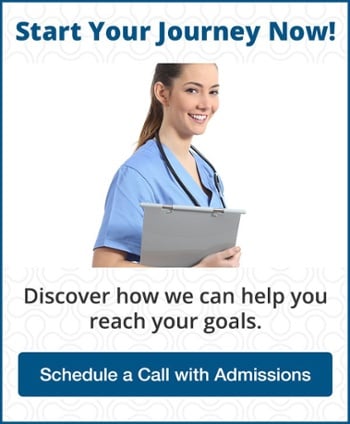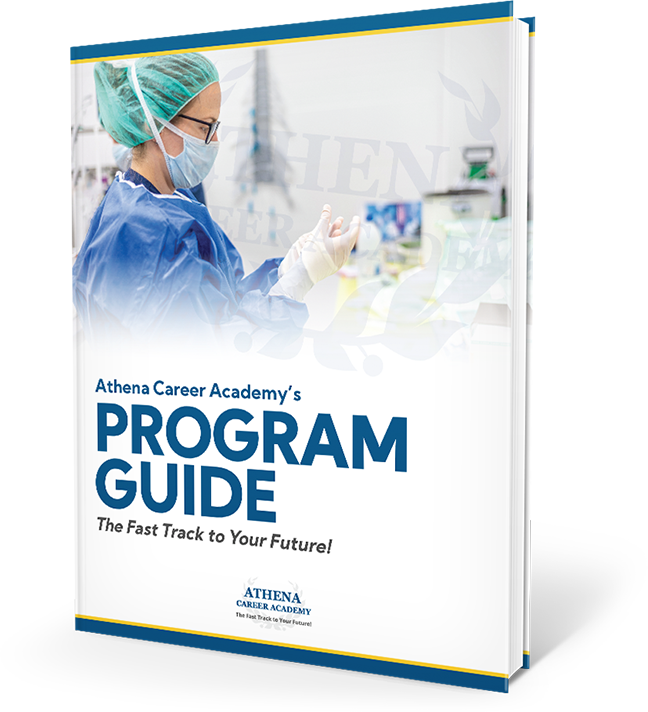Medical assistants are an important part of any healthcare team. As the demand for medical care continues to grow, so does the need for skilled professionals who can manage and coordinate patient care. They are expected to be able to perform a variety of tasks, from taking patient histories and vital signs to scheduling appointments and other administrative duties.
Although you will learn everything you need to know as part of our Clinical Medical Assistant (CMA) program, it's also helpful if you stay up to date with emerging technologies, trends, and tools.

In today's tech-driven world, medical assistants must be able to adapt to ever-changing technologies in order to remain competitive. The following are a few trends, tools, and digital skills that medical assistants should be aware of.
1. Remote Patient Monitoring Devices
Remote patient monitoring devices allow medical assistants to check vital signs like blood pressure, glucose levels, and heart rate in real time from anywhere without having to visit a patient physically. This technology helps reduce costs associated with in-person visits while still allowing professionals to provide quality care. Additionally, it can be used to monitor patients who are under quarantine or unable to come in for an appointment due to physical limitations.
2. Interoperability
Interoperability is the ability of different systems and software to communicate with one another. Interoperable systems allow for secure sharing of patient information between healthcare providers, which can improve care coordination and reduce medical errors. As a medical assistant, it's important to stay up-to-date on interoperability standards so that you can ensure data is properly shared among different healthcare facilities.
3. Online Billing and Claims Processing
With the increasing number of patients seeking healthcare services, it's important for medical assistants to understand how to process claims and payments online quickly and accurately. Online billing and claims processing systems allow medical offices to quickly and securely capture and submit payment data to payers. Additionally, understanding the nuances of different insurance plans can help ensure that each patient is billed correctly and receives the care they need.

4. Internet of Things (IoT)
IoT is a growing network of devices that can communicate with each other. In medical settings, IoT devices can be used to collect and transfer important patient data such as vital signs or medication adherence information. Additionally, IoT can be used to provide remote consultations with patients, allowing for secure and efficient communication.
Examples of IoT in the medical field include wearables for monitoring patient health and automated systems for administering medication. Understanding how to use and implement IoT devices can be a valuable addition to any medical assistant's skillset.
5. Customized Mobile Apps
Customized mobile apps allow medical assistants to provide patient-specific care more quickly and efficiently. These types of apps can be used to access patient data, manage prescriptions and appointments, and even receive reminders when medications need to be refilled, or checkups are due.
Additionally, customized mobile apps can be used by healthcare providers as a way to communicate with patients remotely. Learning how to manage customized mobile apps can be a beneficial skill for any medical assistant.
6. Predictive Analytics
Predictive analytics is a type of data-driven tool that uses algorithms and machine learning to predict future patient outcomes. Predictive analytics can be used to identify risk factors, determine optimal treatment paths for patients, and even detect fraud. As a medical assistant, having an understanding of predictive analytics can be beneficial to helping monitor patient outcomes and ensure proper care.
Become a Medical Assistant Today
By understanding and embracing technology, medical assistants can provide better care for their patients while saving time and money. Developing these digital skills will help you stay competitive in the medical assisting field. If you're interested in pursuing a career as a medical assistant, then be sure to contact us at Athena Career Academy for information on how to enroll in our CMA program today.





